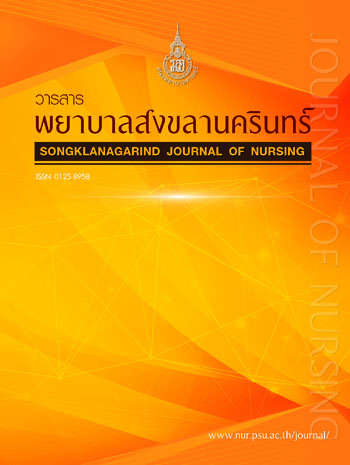Barriers in Providing Palliative Care in Intensive Care Units: Nurses’ Experiences
Main Article Content
บทคัดย่อ
This qualitative study based on Husserlian phenomenology aimed to explain barriers in providing
palliative care in Intensive Care Units (ICUs) from nurses’ experiences who have worked in two ICUs in a hospital.
Ten participants were purposefully selected following the inclusion criteria of 1) being a registered nurse and
have worked in ICU at least 2 years; and 2) having an experience of providing palliative care in ICU. Data were
collected by using individual in-depth interview from March to May, 2016. Data were analyzed by applying
Colaizzi’s approach. Trustworthiness of qualitative study was established by following Lincoln and Guba’s
criteria.
The findings revealed the barriers in providing palliative care in the ICUs from the nurses’ experiences
into 4 themes. These themes included 1) work load; 2) limited resource; 3) the relative’s decision making
is not match with patient’s need; and 4) lack of confidence on palliative care. The finding of this study
provides understanding about the barriers of palliative care in the ICUs, and can be used to develop the
quality of palliative care in the ICUs.


